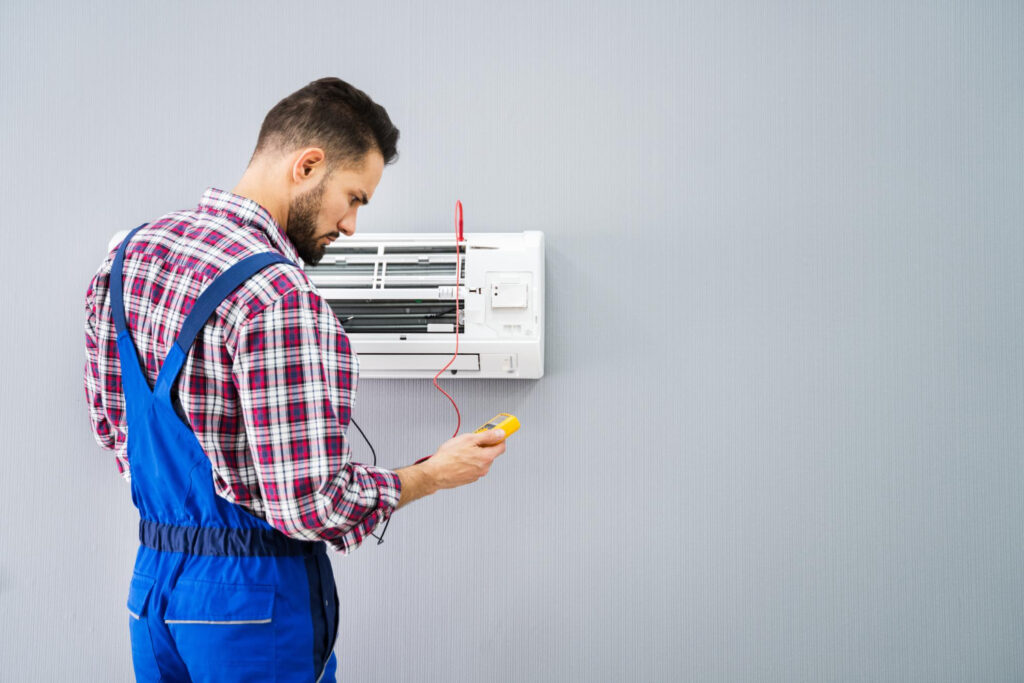Tampa’s summer heat puts every air conditioning system to the test. When your AC runs almost nonstop, the compressor becomes the workhorse of the setup. It pushes refrigerant through the system, allowing it to remove heat from your home. If the compressor struggles or begins to fail, the entire cooling process takes a hit, and that can turn your house into an uncomfortable space fast.
One of the most common reasons homeowners lose cooling is due to problems with the compressor. It’s not always obvious, especially if cold air still flows from the vents at times. But small signs can build up into full system failure. Recognizing those early signs can help you avoid a total breakdown and costly repair. Below are some important red flags that signal your AC compressor might be on its way out and why they matter when it comes to AC repair in Tampa.
Unusual Noises from the AC Unit
Your AC should be fairly quiet when operating, maybe a light fan sound here and there. But if you hear clicking, clanking, or rattling coming from the outdoor unit, something is probably wrong. These noises aren’t just annoying — they’re often your system’s way of telling you there’s a problem with the compressor.
Here’s a quick guide to the kinds of sounds you might hear and what they may mean:
– Clicking or ticking: Can signal electrical issues, like a failing relay or capacitor inside the compressor unit.
– Banging or clanking: May point to a loose internal part, such as a broken connecting rod or piston inside the compressor.
– Humming that doesn’t stop: Could be the motor struggling to start due to internal wear or electrical failure.
– High-pitched squealing: Often has to do with pressure problems in the compressor or fan belt issues.
If any of these sounds happen regularly or begin suddenly after regular operation, turn off your system and call our technicians right away. Ignoring these signs allows damage to continue, and what starts as a minor repair can turn into full unit replacement.
Reduced Cooling Efficiency
Tampa’s heat doesn’t give your AC system much of a break, and when the compressor begins to fail, the first place you’ll notice it is in how well the air conditioner keeps the home cool. The temperature on your thermostat becomes harder to reach or maintain. You may also notice longer run times and frequent cycling without much improvement in comfort.
Several things can happen as a result of a failing compressor:
– The refrigerant doesn’t get compressed enough, reducing its ability to absorb and release heat.
– The system works overtime trying to make up the difference, which increases strain on other parts.
– Air coming from the vents might feel room temperature or even warm.
A common example homeowners experience is setting the thermostat to 74 degrees in the afternoon, only to watch the display stay stuck at 78 or 79 for hours. This usually indicates the cooling system is running, but the compressor isn’t doing its job effectively. If you’ve changed your filter recently and know airflow is good, the compressor may be the problem.
When cooling performance slips like this, don’t wait for indoor temperatures to rise even more. High heat paired with a malfunctioning compressor creates the perfect storm for both equipment damage and serious discomfort. Our professionals can perform a system inspection to confirm the issue and recommend safe solutions.
Frequent Tripping of Circuit Breaker
When your AC keeps tripping the circuit breaker, it’s more than just a power issue — it may mean the compressor is drawing more current than normal. This often indicates the compressor is overworking or has failing internal parts. If the breaker trips frequently when the AC kicks on or shortly after, the compressor might be to blame.
Here’s what may cause a circuit breaker to trip because of compressor problems:
– Shorted or grounded compressor motor
– Worn-out wiring or connectors inside the compressor unit
– Excessive pressure inside the system due to refrigerant imbalances
– Locked rotor, where the motor tries to start but can’t rotate
When this happens repeatedly, many homeowners attempt to reset the breaker only to have the same thing occur again. This cycle can lead to more damage and may even impact other electrical components. Instead of forcing your system to operate under this stress, shut the unit down and have our technicians inspect it. Breaker trips tied to compressor failure can present a safety risk if not handled.
Spike in Monthly Energy Bills
A rising energy bill without significant changes in how often or how low you set your thermostat may indicate trouble with the compressor. If the compressor is struggling, your AC may stay on longer or cycle on and off more frequently just to maintain mild cooling, which wastes electricity.
Some signs this might be connected to a compressor issue include:
– The AC feels like it’s always running but with no noticeable temperature drop.
– Higher utility bills with no recent changes in usage behavior.
– Short-cycling, with the system turning on and off frequently.
The compressor is one of the most energy-intensive components in your AC system. When it deteriorates, it forces the system to work harder and longer. This inefficiency leads to higher costs and more wear on other parts of the system. In months when Tampa’s weather demands near-constant cooling, these costs can climb quickly.
Physical Signs of Compressor Damage
Sometimes you can spot signs of compressor failure just by giving the unit a closer look. Checking the outdoor unit for visible damage, especially after long daily use, can help you detect issues before they turn severe.
Look for the following:
– Burn marks or blackened terminals
– Oil spots or refrigerant pooling around the base
– Frayed or disconnected wires leading to components
– Lack of noise from the compressor, even when the fan is running
These signs are often easier to spot during high-use periods. Your system might still seem to run, but problems with the compressor will prevent it from cooling efficiently. It’s best not to tamper with the mechanical components yourself, but surface-level observations like these can be enough to call in our professionals for a full evaluation.
Keep Your AC Working Strong in Tampa’s Summer Heat
A damaged or failing compressor puts your entire system at risk. Since it’s responsible for circulating refrigerant and allowing the AC to remove heat from your home, any performance drop will affect your comfort right away. Tampa homeowners depend on strong, steady cooling during the hottest months, and keeping your compressor in good shape is key.
Pay attention to indicators like strange noises, uneven cooling, repeated breaker trips, higher utility costs, or visual damage to the system. Each of these may point to early compressor issues that, if left unresolved, could result in longer downtime or a complete system failure.
If you notice any combination of these signs, don’t delay service. Our technicians are trained to diagnose compressor problems and restore your AC’s proper performance before peak heat sets in. Addressing compressor concerns early often leads to quicker repairs, lower costs, and less stress for your household. Proper service helps keep your system cooling efficiently all summer long.
At FL HVAC Team, we understand the discomfort that comes when your AC compressor starts to fail. If you notice unusual noises, inefficient cooling, or rising energy bills, it might be time to have your system checked by our professionals. Make sure your home stays cool and efficient by scheduling reliable AC repair in Tampa before small issues turn into major breakdowns. For a quick estimate or to book a service visit, please contact us today.

